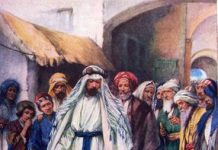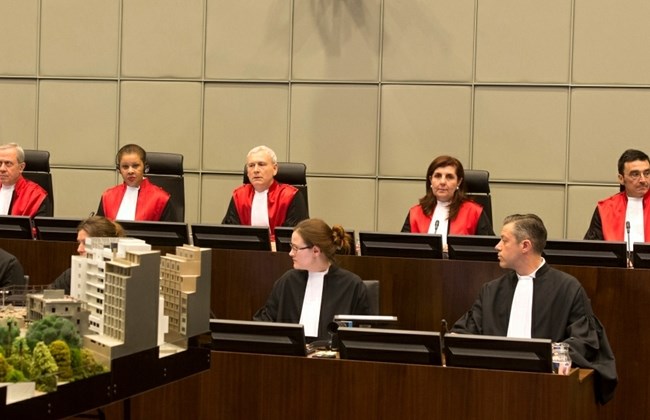Special court on assassination of former Lebanese PM Hariri files annual progress report
By YONAH JEREMY BOB/03/10/2015
The Special Tribunal for Lebanon trying senior members of Hezbollah for the assassination of former Lebanese prime minister Rafik Hariri announced on Tuesday that it had published its sixth annual report. Harari was assassinated in an audacious and massive bombing on February 14, 2005, which also killed 21 others and left the area covered in smoke and debris.
Prosecutors have focused mostly on five indicted senior Hezbollah operatives being tried in absentia, without indicting any Syrian officials.
An initial investigation alleged Syrian involvement. The prosecution’s explanation for why it says the Hezbollah agents assassinated Hariri relates to orders they allegedly got from Syria because of Hariri’s tendency to overdo it in seeking independent action from Syria. The latest report was filed last week with the United Nations secretary-general and the government of Lebanon. It only became publicly available on Wednesday.
Covering the activities of the tribunal from March 2014 through February 2015, as well as its objectives in the coming year, the report highlights both judicial and non-judicial developments.
Proceedings had been delayed until June 2014. The report calls the smooth “resumption of proceedings” a “successful step toward the completion of a trial and fulfilling the tribunal’s primary mandate” of addressing the legal issues and conspiracy underlying the assassination. As of mid-February, the tribunal had heard oral testimony from 47 witnesses and admitted into evidence written statements by 56 others. It has admitted into the record 579 exhibits totaling 27,582 pages, ruling around 500 more pages to be admissible. It has maintained a policy that all the witness evidence be heard in open session “to maximize publicity and public scrutiny.”
The tribunal considered two cases of alleged contempt and obstruction of justice during the reporting period. They concern making public the identities of individuals alleged to be confidential witnesses. The spin-off trials are set to take place later this year. “The first mandate was a period of investigations and preparations. The second saw the opening of the first trial on 16 January 2014. The third mandate will include the completion of the current trial,” said Judge David Baragwanath, a former tribunal president.
Baragwanath said the tribunal was “uniquely placed to make a contribution to the rule of law. In our new mandate, we must redouble our efforts to ensure that our legacy is one of significant and enduring value for Lebanon primarily, but also for the region and beyond.” The ongoing trial has seen major leaders and personalities testify, with one of the highlights coming in November 2014 when Lebanese lawmaker Marwan Hamade told the tribunal that Syria had blocked Lebanon from engaging in peace talks with Israel. A former minister and close ally of Hariri, he made the statement in the case against Hariri’s alleged assassins.
Speaking alternately in English and Arabic, Hamade explained that as part of trying to take control of Lebanese foreign policy and governance, Syria “forbade” Lebanon from negotiating with Israel “before Syria was done” negotiating with Israel. He added that “although Lebanon had hot topics” to talk to Israel about, including Palestinian refugees in the country, Syria blocked all dialogue. The main reason for his testimony was to help prosecutors build their case for the motive in assassinating Hariri.
Until November 2014, the prosecution had carefully steered clear of accusations against Syria, trying to avoid further controversy and diplomatic opposition from Syria’s supporters. It did not explain the reason for the timing of the change in strategy. Initially, the trial involved four defendants – Mustafa Amine Badreddine (a relative of assassinated Hezbollah commander Imad Mughniyeh), Salim Ayyash, Hussein Hassab Oneissi and Sassad Hassan Sabra. Eventually, Hassan Habib Merhi was added. Because the case is against five senior Hezbollah operatives, it essentially pits the country’s Shiites against its Sunnis in a region where the two sides have been at loggerheads or outright war. Hariri was a Sunni.























